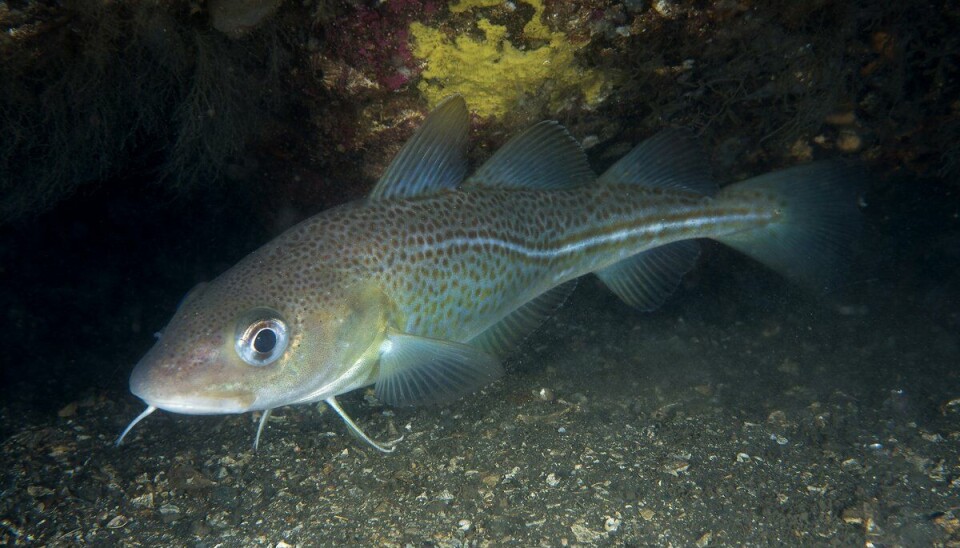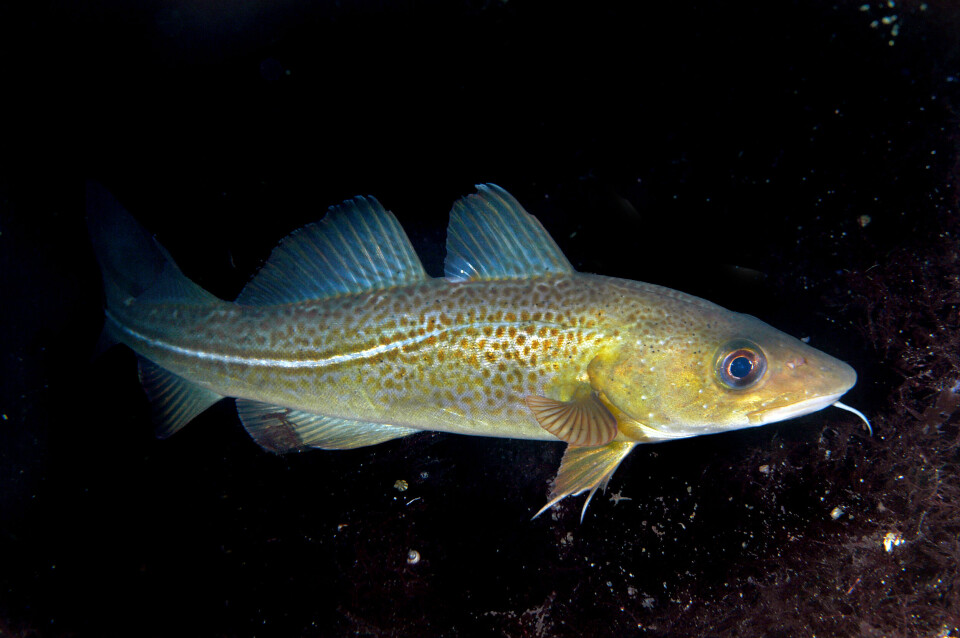THIS ARTICLE/PRESS RELEASE IS PAID FOR AND PRESENTED BY the Institute of Marine Research - read more

Supergenes protect cod against environmental changes
Researchers have found that Atlantic cod possess a set of 'supergenes' that enable them to quickly adapt to environmental changes.
In a new article published in the highly respected journal PNAS, scientists at the Institute of Marine Research and the University of Agder (Centre for Coastal Research) show how three so-called supergenes may provide good news for cod.

Halvor Knutsen(Photo: IMR)
"In practice, this means that cod can adapt to changes in the environment quite quickly. This includes short-term changes, such as year-to-year variation in temperature, precipitation and currents, and longer term changes such as the climate change we are now experiencing. As a species, cod is very flexible," explains researcher and lead author Marte Sodeland.
Supergenes contain lots of variation
The reason scientists call them supergenes is that they contain up to several hundred genes which can be inherited as a single unit. These units therefore contain a great deal of genetic variation combined into evolutionarily adapted 'packages'.
"Each individual has the genes it is born with, but the supergenes mean that cod collectively have quite a wide range of variation at their disposal," continues senior author Halvor Knutsen.

Long-term pressure on populations
Through their work, the researchers have shown that the cod in the North Sea and Skagerrak have been under pressure for a very long time. Their estimates suggest that the populations may have been in decline since as long ago as the Viking Age.
Essentially, these supergenes can help to explain why the cod has survived in spite of a millennium of high fishing pressure.
"There was a huge expansion of the fishery after the start of the Viking Age. The Vikings were not just keen fishermen and exporters of fish, they also exported the fishery itself. Archaeological and historical sources reveal that fisheries in Northern Europe were industrialised and commercialised once the Viking Age began," Sodeland says.

Marte Sodeland(Photo: Private)
This expansion of the fisheries continued through the Middle Ages. In those days, cod and herring were particularly sought after amongst Europeans.
"Our study shows that after around one millennium of heavy fishing, there is relatively limited genetic variation in cod outside these supergenes," explains Sodeland.
Can cod cope with warmer seas?
Amongst other things, the supergenes affect the ability of cod to cope with temperature changes.
"Even if the sea becomes warmer, these supergenes may make it possible for the cod to hold on. We know from archaeological finds in Denmark that cod were abundant in these waters even during periods when the climate was generally several degrees warmer than it is today."
There is strong evidence that the high levels of mortality seen today are largely due to fishing.
"If we give the cod slightly more breathing space, then maybe it can hold on in spite of the big changes in its environment, precisely due to the variation present in these supergenes", adds Sodeland.
Reference:
Sodeland et al. 'Stabilizing selection on Atlantic cod supergenes through a millennium of extensive exploitation', Proceedings of the National Academy of Sciences of the United States of America (2022).
See more content from the Institute of Marine Research:
-
Do whales compete with fishermen?
-
These whales have summer jobs as ocean fertilisers
-
Have researchers found the world’s first bamboo coral reef?
-
Herring suffered collective memory loss and forgot about their spawning ground
-
Researchers found 1,580 different bacteria in Bergen's sewage. They are all resistant to antibiotics
-
For the first time, marine researchers have remotely controlled an unmanned vessel from the control room in Bergen





































